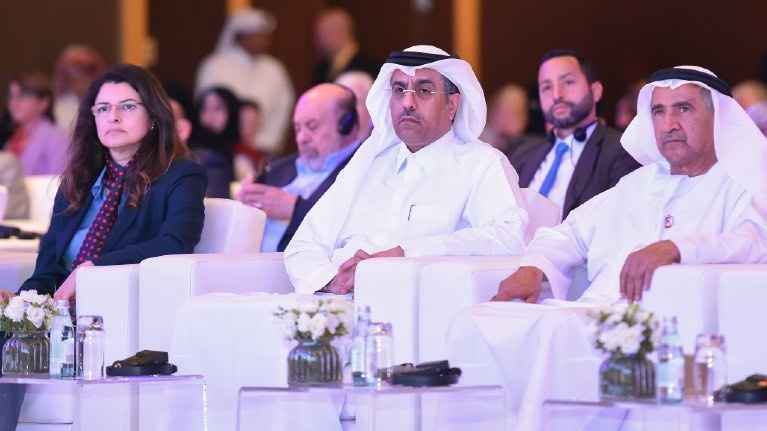
The Government of Qatar wants to upgrade its heat stress prevention legislation to promote occupational safety and health preventive measures, said the Minister of Labour.
The Government of Qatar wants to upgrade its heat stress prevention legislation to promote occupational safety and health preventive measures, said the Minister of Labour.
The comments were made as Qatar presented an overview of the research on heat stress undertaken in the country in 2019 in a two day conference with the International Labour Organisation (ILO) that took place on May 9 and 10.
“Qatar is keen to upgrade its heat stress prevention legislation in line with labour market developments. I commend the ongoing collaboration with regional and international partners, as well as national stakeholders, to promote occupational safety and health preventive measures. Building national capacities to monitor heat stress cases and ensure the implementation of new measures is key to protect workers and promote a healthy and safe work environment”, said Qatar’s Minister of Labour Ali bin Samikh al-Marri.
“Qatar has played a leading role in protecting workers from occupational heat stress, with the adoption of one the world’s first comprehensive plans to mitigate its effects on workers’ productivity”, added the Minister.
Theo two-day international conference titled “Occupational Heat Stress: Implementation of Practices, Sharing of Experiences” brought together government, workers’ and employers’ representatives from the Arab States, as well as leading researchers in the field of heat stress from around the world.
“Unseasonably warm temperatures are not only causing significant disruption and damage to the environment, but their impact on human health is reaching alarming proportions,” said Ruba Jaradat, ILO Regional Director for Arab States.
“Heat stress also reduces worker productivity. We estimate that 2 percent of total working hours worldwide will be lost every year, either because it is too hot to work or because workers have to work at a slower pace. More concerted commitment by governments and employers is needed to prevent and mitigate the impact of heat stress on workers worldwide,” she added.
ILO specialists discussed the findings of the Working on a warmer planet: The effect of heat stress on productivity and decent work report and the latest research evidence on the effects of heat exposure on health, and policy recommendations.
Participants also shared international experiences on related research, featuring presentations on experiences from Africa, Asia, Europe, and Latin America.
“As employers, we have a responsibility to protect workers from the adverse effects of heat stress. This conference has provided valuable insights and best practices to help us achieve that goal,” said Fael Bin Bilal Bin Mabrouk Beit Bilal, representative of the Chamber of Commerce and Industry of Oman.
“We are committed to developing tools and using evidence-based strategies to reduce the effects of heat on the workforce.”